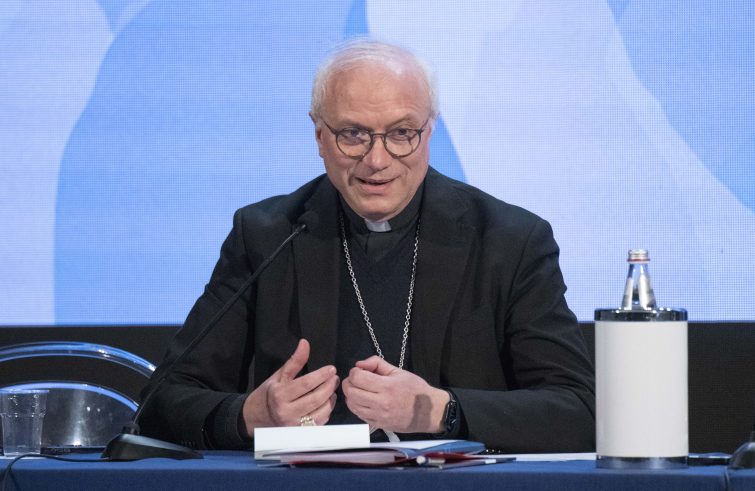
(Trieste) “Participation is not partisanship: political engagement means seeking solutions that are appropriate for us and for cultures different from our own”. Contacted by SIR, Monsignor Giuseppe Baturi, Secretary General of the Italian Bishops’ Conference, offers an overview of the Social Week in Trieste, analysing the Pope’s speech to 1,200 delegates and highlighting the consistency between the themes addressed by the Pope and those identified as priorities in the 50th annual meeting of Catholics in Italy. “Participating in democratic life means not delegating social and political action to others, while enabling everyone to play a leading role in building the future,” he explained. “The non-participation of intermediate bodies and families, leads not only to the impoverishment of democracy, but also to a decrease in solidarity.” “Instead of thinking about some kind of Catholic political unity and making contingent decisions, it is necessary to focus on the fundamental issues that should be discussed in the various spheres,” he said, referring to the possibilities for political participation moving forward.
In his concluding address to the event, the Pope made a strong appeal for participation, thereby emphasising a key theme of the Social Week. How can we respond to his invitation?
The Holy Father reminded us that participation requires social love. For Christians, love of neighbour is a social commitment aimed at ensuring that all people enjoy a good life, that they are helped in their needs, that they are included and that no one is left behind.
For us believers, participation is not just a civic duty, but an experience of love rooted in the theological virtues.
Participation, which gives concrete form to democracy, is expressed in justice and in social love for others, which can bring people together. As the Pope has told us, participation is not partisanship: to engage in political life is to seek just solutions for ourselves and for cultures different from our own.
Francis called for bottom-up education and political participation projects from the ‘people’ gathered in Trieste. What does that mean for the future?
It means encouraging everyone to participate, without excluding anyone. In this respect, the Social Week in Trieste was exemplary in the way it was organised, alternating plenary sessions with workshops – in which all the different components of the People of God were represented – and the good practices circulated throughout the city as practical examples of real participation.
Participation in democratic life means not delegating social and political action to others, but enabling everyone to play a leading role in building the future. The non-participation of intermediate bodies and families leads not only to the impoverishment of democracy, but also to a decrease in solidarity.
That’s why associations, movements, parishes, the world of voluntary work and the educational sector must be strengthened so that the freedom of each person to serve the cause of justice and promote the freedom of all can be expressed through their actions.
The Pope has entrusted this task in a special way to the Catholic laity.
However, the Pope’s words should be read in the context of the distinction between ministries and charisms.
The pastors are entrusted with the task of educating, of highlighting the fundamental values and horizons, while the lay faithful are called to make a concrete commitment, to exchange views and make proposals in order to find common solutions.
Let us not forget that the Social Weeks have their origins in the Catholic movement and in the Opera dei Congressi, which immediately addressed issues such as trade unions, contracts, agricultural problems… The theme of the first Social Week, held in the city of Pistoia in 1907, was “Catholic movements and social action”. Contracts, cooperation and trade union organisation. Education”. From the beginning, therefore, the aim was to invite everyone to take their place in history according to their specific role, to propose and focus on politics and to fulfil the demands of politics.
Pope Francis has asked for an additional commitment to the formation of young people in particular. Is it a question of reviving the political education that has existed in the Catholic world in recent decades or, on a public level, of reestablishing a ”Catholic political party”?
I believe that the Social Week has sent a clear message in this regard. The best approach is to bring together reflections, debates in public spaces. If we were to transpose the experience of Trieste into the everyday life of the Church, we could rightly say that
now is the time to create common spaces for proposals, where reflection ultimately results in practical action through the various forms of social commitment.
A synodal style, in short, in line with a Church that goes forth, as Pope Francis has asked.
Rather than thinking about some kind of Catholic political unity and making contingent decisions, it is necessary to focus on the fundamental issues that need to be discussed in the various spheres,
as was the case during these days in the workshops, linking reflections and proposals to the concrete reality of life, with a bottom-up approach.
The Social Week will not end in Trieste. How will the journey, which can be described as a ” work in progress “, continue?
We expect to receive more concrete proposals, especially from the particular Churches, in the coming months, as early as September. It is a question of reorganising and rethinking the places where exchanges between the various components of the ecclesial community already take place, such as the Ecclesial Council of Social Welfare Bodies, aimed at “revitalising”, in a synodal key, the participation which already exists and which needs to be increased, so that democracy may flourish, in society and in the Church.









